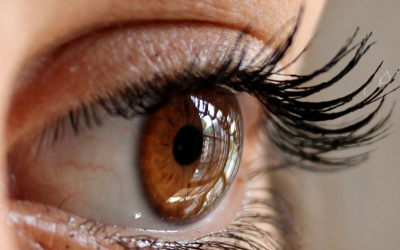My Therapy Tips, Tools & Insights
Newcastle NSW AustraliaWelcome to my relationship and therapy blog — a space where I share evidence-based tools, intuitive insights, and deep reflections on emotional wellbeing, couples therapy and personal transformation.
You’ll find articles covering a wide range of therapy tips rooted in my experience as a practitioner in marriage counselling, couples therapy, and EMDR (Eye Movement Desensitisation and Reprocessing). Whether you’re navigating relationship struggles, emotional blocks, or inner healing, these writings are here to support your journey.
My posts draw on the latest research in neuroscience, psychology, and trauma-informed therapy, as well as insights gathered from decades of direct client work. I also include book recommendations, guided tools, and practical techniques that help shift long-held patterns and create space for lasting change.
I’m especially passionate about:
-
Breaking subconscious conditioning and generational beliefs
-
Exploring how neurobiology and mood states impact love and attachment
-
Helping individuals and couples shift their vibrational frequency by releasing emotional blocks and negative thought patterns
My writing encourages self-inquiry, emotional mastery, and conscious relationships. I believe that when we understand the root of our reactions — especially within intimate partnerships — we unlock the power to rewire our inner world and reimagine our connections.
If you’re seeking deeper connection, self-awareness, or support through relationship challenges, I hope these articles offer insight and inspiration. Whether you’re in a long-term relationship or healing from heartbreak, there’s something here for anyone wanting to grow. For more about my approach go to my couples or individuals pages.
Strengthen your bond with compassionate, expert support. “Start Couples Therapy with our Online Counselling Today“
Anger Management Intensives: Save Your Relationship with EMDR
Anger in a partnership isn’t just about “losing your temper.” Anger is a natural human emotion, however, when it becomes persistent, explosive, or unmanaged, it can quietly erode the foundation of even the strongest relationships. Anger that goes unresolved often...
Micro-Cheating Explained
Micro-cheating has become an epidemic in modern relationships — a cluster of small, often covert behaviours that fall short of a full affair.
Three Approaches to Marriage Counselling: Weekly Sessions, Intensives, or Retreats
When it comes to getting relationship help, marriage counselling offers various routess: individual sessions, intensives, and retreats. Each approach has unique benefits, and the right choice depends on your couple needs and preferences. Here is an outline of each pathway with clinical insights to guide your decision.
The Three Best Ways to Recover from Betrayal Trauma
Betrayal trauma is one of the most devastating human experiences. When a partner breaches any form of trust it can and leave deep emotional scars. Recovering from such trauma may not be possible by time alone. Intentional, structured interventions to process...
How Toxic Masculine and Feminine Traits Harm Relationships
Toxic masculine and feminine traits, often learned through cultural and societal conditioning, can gradually erode the emotional connection in all types of personal relationships. These maladaptive behaviours, reinforced by rigid gender roles and societal...
How Your Attachment Style Runs Your Relationship
Our early experiences of bonding with caregivers create powerful imprints on how we connect with others in adulthood. Attachment styles are responsible for emotional patterns and communication within romantic relationships. Understanding ones own attachment style—and...
Lost That Spark? How to Reconnect and Feel Close Again in Your Relationship
All relationships can experience moments of disconnection at some point in their lives. Whether it’s due to busy schedules, unresolved conflicts, or simply the passage of time, feeling distant from your partner can be unsettling. But the good news is, that spark may...
The Gottman Method: Couple Therapy Intensives
In recent years, couples therapy has evolved beyond traditional weekly sessions to offer more intensive formats, such as mini-marathon.
Self-Administered EMDR: A Coaching Package
Traditional EMDR therapy often involves scheduled sessions with a trained therapist. However, it is possible to speed up the healing process by incorporating Self-administered EMDR into your weekly routine. When you learn how to do perform EMDR on yourself you may...








